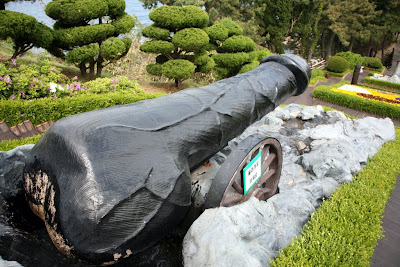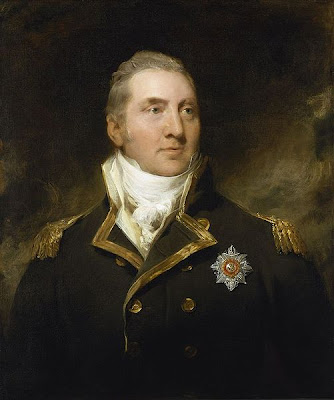 |
| Available from Amazon The Great Gamble: Nelson at Copenhagen |
The book is "The Great Gamble: Nelson at Copenhagen" by Dudley Pope. Hard to get hold of these days, and you might think an odd subject for a post here, but as the battle of Copenhagen led to the phrase "turning a blind eye", there is some broader relevance. At the height of the battle, the commanding Admiral (Sir Hyde Parker, who was four miles away, and because of the conditions, coming up very slowly) ordered the attacking fleet to disengage. Nelson ignored this, at one point putting the telescope to his blind eye and saying "I really do not see the signal". Hyde Parker was a cautious commander, judged by Pope to be the wrong man for the job: Pope has a lovely analogy that Parker crossed the North Sea at the start of the mission at the same pace as a child dawdling to school, because of his nervousness over losing ships onto the coast.
The signal to cease the attack occupies a large chunk of the book plus an Appendix, to debunk a subsequent tale told in Hyde Parker's defence, that the signal was to be obeyed at Nelson's discretion. Pope destroys this with a mix of eye-witness accounts and sound reasoning (the signal was made to the whole fleet, not to Nelson alone, and some ships obeyed it).
Pope's account of the careers and personal lives of Nelson and Parker, and the background diplomatic failures that led to the battle, are absolutely superb. The battle itself does degenerate into a list of facts as to which ship attacked which, but that's almost unavoidable.
So I very much enjoyed this. It won't appeal to all readers, but it certainly has a place on my shelves.

